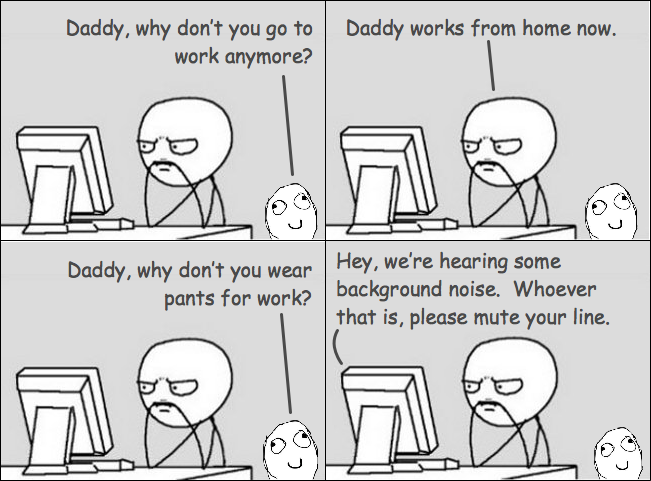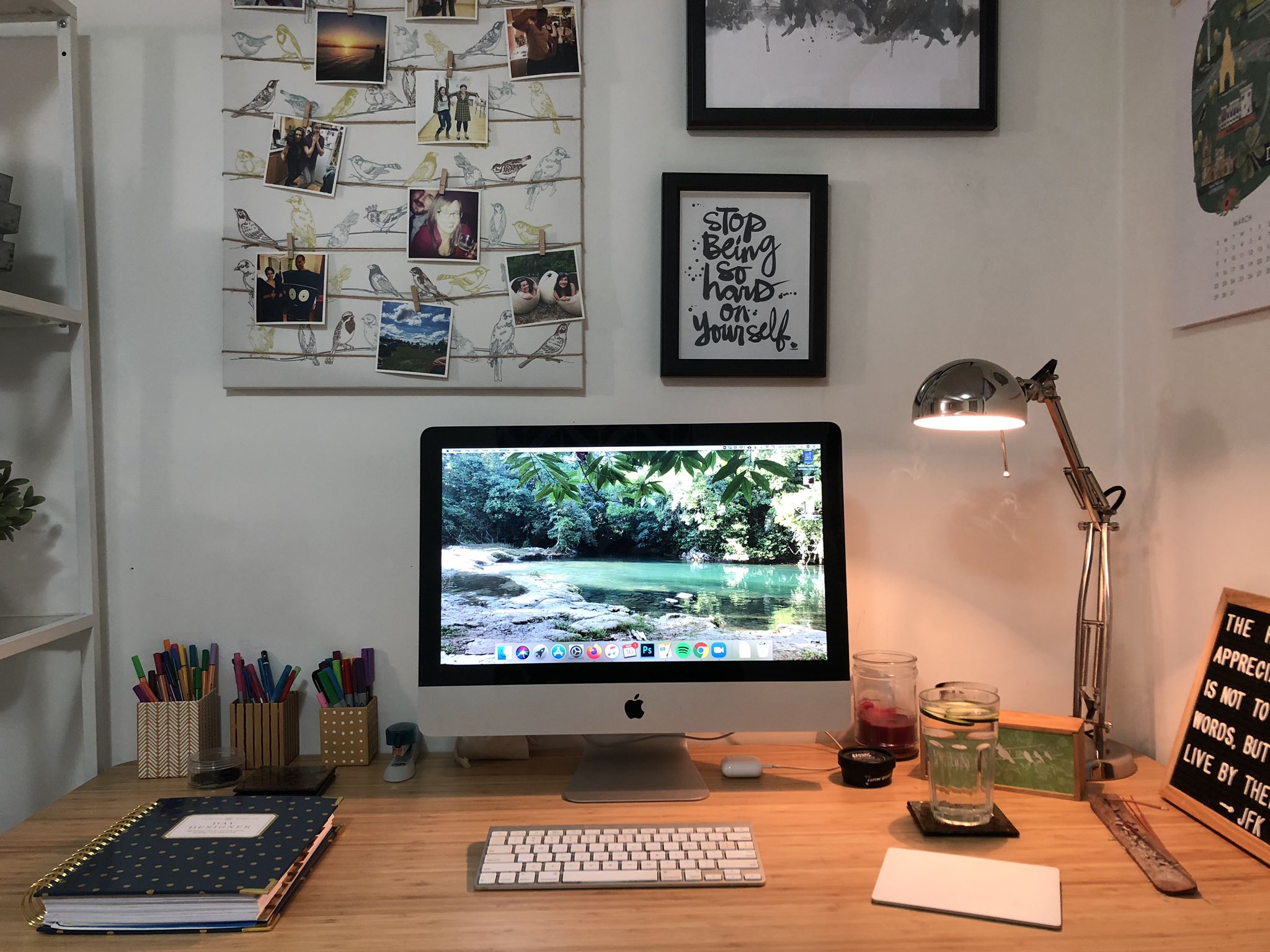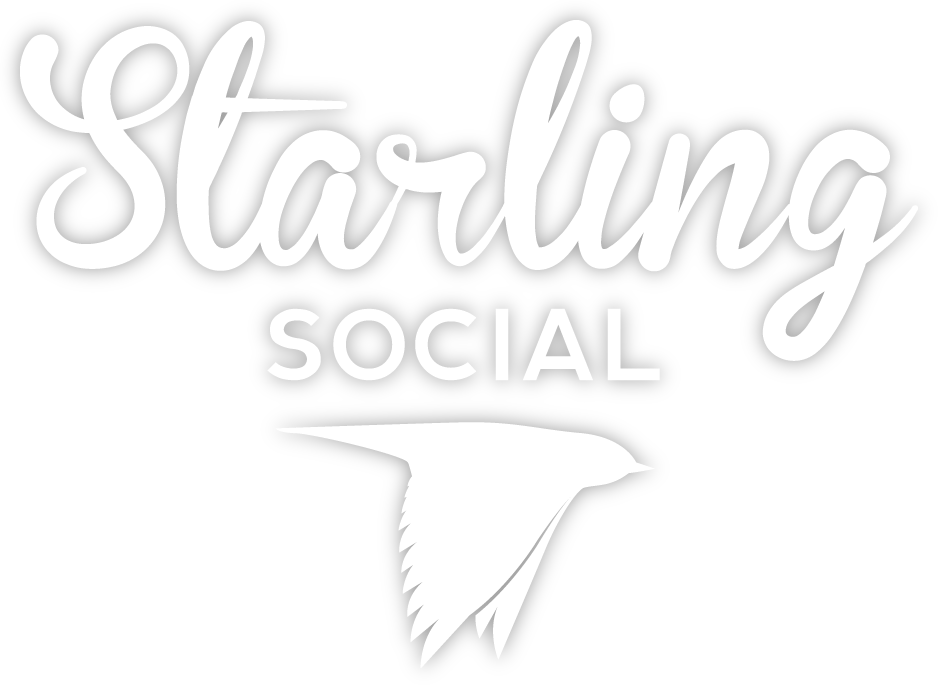Tagged: Coronavirus
10 Easy Ways to Promote Your Business During the Coronavirus Outbreak
- by Alyson Shane
Social distancing is our only option to flatten the curve of the Coronavirus spread. But the impact could be devastating for many businesses, especially those that rely on foot traffic and offer on-site services.
As a result, businesses are looking for easy and efficient ways to promote themselves during the outbreak. Luckily, there are lots of tools at your disposal to stay connected and build awareness about your brand.
Below are 10 ways to keep your customers engaged from a distance:
1. Be active on social media
People are turning to social media to stay connected so make sure your brand is active online.
This is the best time to focus on community engagement. Leaving comments and having conversations with your audience and followers shows your business is tuned-in and humanizes your brand.
If your business can afford to contribute to local food banks or other community services, now is the time to lead by example. Share the news on social media and encourage others to do the same.
2. Connect with your customers through email
More businesses are online than ever before, so cut through the noise and to talk to your customers where they live online: in their inbox.
Use your email newsletter to promote discounts, events like live streams, webinars and online training, and anything your customers might care about.
Depending on your business, this might also be a good time to do something different with your newsletter.
For example, for the next few weeks the Starling Social weekly newsletter is switching to a “Good News” edition where we’re highlighting positive stories from our community and across the globe as a way to spread a little more joy in these uncertain times. If you’re interested, sign up here.
3. Revisit your pay-per-click strategy
With more people performing searches than ever before, now is a great time to invest in pay-per-click (PPC) marketing to help your business get found.
But if your customers need to leave the house to engage with your business, it may be worth hitting “pause” on any PPC campaigns promoting those services.
If you can, focus your ads on services and promotions that customers can access and enjoy from home. Revisit your keyword strategy and consider what new and different searches they might be making from home, and focus your ad dollars on those searches instead.
PPC marketing is also a great way to use any marketing budget that needs to be reallocated due to social distancing, as Google Ads offers an impressive return on investment (ROI) of $8 for every $1 spent.
4. Revisit your SEO strategy
With more people sitting at home browsing the internet than ever before, it’s vital that your business ranks as high as possible on a search engine results page (SERP).
For reference, before the pandemic started Google SERP rankings have a return-on-investment (ROI) of roughly the following:
- 1st Position: 31% click-through rate (CTR)
- 2nd Position 15% CTR
- 3rd Position: 9% CTR
- 4th Position: 7% CTR
- 5th Position: 5% CTR
Organic CTR for positions 7-10 is virtually the same.
As we can see, the CTR drops off dramatically after the first few results, so it’s critical to make sure your website ranks as high as possible.
Looking for more insight on improving your SEO rank? We’ve got some resources that may help:
- SEO Research Tips for Building Your B2B Content
- Here Are the Answers to Your Hottest Local SEO Questions
- How to Use The KonMari Method for SEO
5. Publish content on your blog
People are hungry for content to consume with all this extra time. If your business has a blog, use this opportunity to share posts that inform, amuse, or excite your readers.
Use any SEO and PPC research you've done to inform the topics you discuss on your blog, since searches give you insight into what people are looking for. If you provide answers to the search in your post, your blog has a higher chance of ranking higher on the results page.
Bonus: publishing blog posts regularly gives you extra social media content to share, making this task a little bit easier, and gives your website a natural SEO boost.
6. Highlight gift cards and take-out options
Gift cards give your business an infusion of cash right away and guarantee that the customer will return to your business in the future. In Seattle, customers are going out of their way to buy gift cards from local businesses to keep cash flowing.
To promote social distancing, set up an e-card program and promote take-out as an option if you run a restaurant, cafe or bakery.
7. Host contests and giveaways on social media
Contests are a great way to engage your audience and gain more visibility for your brand, just make sure they’re tasteful. Book publishers can give away audiobooks and e-books to their followers as a way to pass the time indoors, for example.
A great way to support other local businesses is to collaborate on a contest giveaway - just make sure all the prizes are either digital or can be sent through the mail.
8. Promote discounts
Now is a great time to entice long-term purchases by offering discounts. If your business offers memberships, encourage customers to lock into a one-year membership now at a discounted rate. If you run a retail store, consider offering free shipping for online orders.
Depending on your business model, you can also use traditional promotions like “buy one get one” (BOGO) and free incentives.
9. Keep customers engaged with live video
If you have a store opening, product launch, or celebration planned, use Facebook and Instagram Live to stream it to your social media channels.
If you don’t have any announcements planned, use video as a way to go behind the scenes with your business. Share how your team is connecting remotely. Walk viewers through how a product gets made. Offer a live Q&A. The possibilities are endless, just be creative!
Video is a great way to keep customers engaged and put a face to your brand in addition to selling your products and services. Promote your live events and increase attendance by offering a special discount code to the first 50 or 100 people who join.
10. Host webinars and online events
Social isolation is leaving people more time to invest in training and personal development, so now is the ideal time to hone any online offerings your business may have, like webinars or online certifications.
Many businesses rely on in-person events to generate income and leads, so if you have a conference or training event that has recently been cancelled, consider reformatting it into a webcast that attendees can join from home.
How to promote your business during the coronavirus outbreak: conclusion
Nobody knows when things will go back to “normal” or even what that “new normal” will look like, so it’s more important than ever for businesses to connect with their customers online.
Invest in your social media and in content that keeps your customers engaged and excited about supporting you during this crisis. If you need help, drop us a line.
If you want more tips like this (plus good news from our community and elsewhere) sign up for our weekly, hand-picked newsletter.
Above all, stay safe out there.
xox
The Starling Social Team
How to Successfully Work From Home While Social Distancing
- by Alyson Shane
Wondering how to successfully work from home while social distancing?
If you said ‘yes’, you’re not alone. It’s only Tuesday, and many people across Canada and in my community here in Winnipeg are struggling with working from home for the first time as businesses close down to prevent the spread of COVID-19.
It’s a weird time, so I wanted to take a break from our typical marketing-focused content to share a few personal tips on staying focused while working from home.
I’ve been working from home for six years and manage the Starling Social team remotely. I love working from home, but I’ll be the first to admit that it isn’t always easy. This is especially true during these strange, trying times.
So if you're new to remote work and want some tips on how to successfully work from home, check out these suggestions to say sane and productive:
1. Establish how you’ll communicate
Before I get into the personal stuff, let’s start by focusing on how you’ll get work done.
In my experience, the biggest time-waster and source of anxiety when working remotely is not having a process to discuss, assign, and manage tasks and projects to completion.
At Starling Social, we use a combination of four tools, listed below:
- Gmail. All formal communication is done by email.
- Zoom. To discuss projects that are too complex for email.
- Trello. Trello is how we keep track of multiple projects, due dates, and deliverables on an ongoing basis.
- Each client has a Board, and each project has a Card that gets assigned, tracked, and completed for all collaborators to see.
- Google Drive. Everything we do - blog post drafts, spreadsheets, strategy documents, all of it - is stored in the cloud.
- We use Google Drive to track edits, changes, and updates to all our documentation. This reduces confusion and keeps email to a minimum.
2. Get into a morning routine ASAP
The act of going to and coming home from the office plays a big part in being able to separate our work and personal lives in healthy ways.
Find something in your morning routine that you can use to transition from waking up to focusing on being productive mentally.
Whether that’s a long shower or slowing down to enjoy making your coffee, find something that you can use to transition from “waking up” to “working” at home.
My morning routine is pretty simple: every morning I brush my teeth, shower, get dressed, and wash my face. I listen to a couple of podcasts (Up First and What a Day) to catch up on the news while I get ready. Each podcast is about 15 minutes, so I work a 30-minute “commute” into my morning. By the time the podcasts are over, I’m sitting at my desk about to start my day.
My office is right next to my bedroom, so I could slob over to my desk in my PJs every day if I wanted to. But the days when I’m most productive are the days when I follow my morning routine.
Trust me on this one!
2. Keep “regular” work hours
Treat your workday as a workday and keep regular work hours. If you usually work 9 - 5, stick to those hours as much as you can.
Being clear on when you’re available sets the expectation you aren’t on-call 24/7. It also has the added benefit of keeping your brain in a familiar pattern, which helps with staying focused.
The team and I keep 9 - 5 hours for our clients, but I like to be at my desk for 8:30 AM so I can get a jump-start on the day - and it usually means I can wrap up early if I get through my to-dos for the day.
3. Create a separate workspace
Working from places where you typically relax and unwind makes it harder to focus and be productive in those same spaces.
I have an office with a door that I close when I’m not working. It helps me separate my professional and personal lives and helps m focus because mentally, I know that if I’m sitting at my desk, I’m working.
Having a "workspace" can also be helpful for communicating with kids about why you're not able to spend time with them even though you're home all day.

If you don’t have the space for a separate office, at least avoid working from your bed. Most people who work in bed tend to do it before falling asleep, which can reduce melatonin and decrease the quality of your sleep.
3. Drink water
Studies have found that staying hydrated can increase your productivity, so don’t slip on staying hydrated while working from home.
When we work in an office, getting up to refill a water bottle is a chance to take a break. We can be social, stretch our legs, and allow our brain to focus on something else for a few minutes as we walk to and from the water cooler or kitchen.
At home, we don’t have the same natural distractions or reasons to wander, so we’re less likely to stay hydrated.
One trick I’ve been using is to add a few slices of cucumber to a water bottle and keep it on my desk. Having it in arm’s reach means I sip more often, and when all that’s left in the bottle is cucumber slices, I refill the bottle.
The idea of cucumber slices languishing in the bottle makes me feel icky, so I naturally refill the container to keep them hydrated right away. This self-hack has helped me drink an average of 4 - 6 glasses of water a day - way more than I used to!
4. Take breaks and stretch
Working from home can easily lead to sitting at your desk for eight hours straight, hunched over your keyboard like Gollum from The Hobbit if you aren’t careful.

I take multiple 5 - 10-minute breaks throughout my day. Sometimes it’s just to go to the bathroom or refill my water, or just to wander through the house to pet the cats and check the mail.
Whatever it is, I’m moving around and away from my desk.
If I have time, I try to work a little yoga into my afternoon. Yoga with Adriene is a great YouTube channel with easy, 10 - 20-minute yoga videos designed to do at home, and in some cases, even at your desk.
Here’s one of my favs for you to try:
5. Manage your time with the ‘Pomodoro Technique’
I use this tactic to stay focused when working on something that isn’t grabbing my attention or when I have to finish something, and I don’t want to get distracted.
The technique uses a timer to break work into intervals of 25 minutes each, separated by short breaks. Each interval is known as a pomodoro, from the Italian word for ‘tomato’.
I like this technique because it encourages breaks, which, as we just talked about, are essential for productivity and your mental well-being. The 25-minute breaks also feel attainable and tend to go by pretty quickly in my experience.
Not sure where to start? This was the first pomodoro video I tried, and it’s still my favourite, but you can find a big list of them here.
6. Make your workspace somewhere you like to be
Here’s the truth: as long as we’re practicing social distancing, this is where you’re going to be spending a lot of your time. Why not make it an enjoyable place to be?
Here’s an example of what my desk setup looks like at home.

My office is in the basement so unfortunately I can’t grow any plants near my desk, but I make up for it with big pieces of art and extra lighting.
I burn incense, I have photos of my friends on the wall, and I choose desktop wallpapers featuring bright colours that inspire me (my wallpaper is a cenote in Belize - sigh!) All of these things make my desk a positive, inspiring place for me to get work done.
If you have a desktop setup to share, tweet it at me! I'd love to see it.
7. Work when you’re most productive
The key to working from home is to figure out when you’re most productive and do your best to focus on the most important tasks during that time.
If you have kids at home due to school closures, consider when you can get the most done in-between taking care of them.
For example, you know you’re at your best first thing in the morning, try to get up and get as much done as you can. Then, if you have to manage the house, focus on the kids, or if you just need to take a damn break (don’t we all?), then you’ve got the essential things out of the way.
If you can, talk to your employer about working “flex time” so you can be there for your family while also scheduling in the time you need to get work done.
8. Review and plan ahead
If having a morning routine is how I ease into the workday, planning out my next day and reviewing anything I have coming up is how I put work down.
If you don’t already use one, I suggest getting a day planner to use while you work from home. I use a Day Designer and swear by them, but if you’re looking for a cheaper alternative, any daily planner will do.
At the end of my workday, I allot 5 - 10 minutes to reviewing the next day’s meetings and tasks and adding anything I didn’t finish to the next day’s to-do list. I typically have 3 - 8 “high” level tasks that I break down into smaller deliverables.
Here’s an example of what I mean:
- Finalize spring ad campaign development
- Resolve comments in GDoc
- Approve ads / send back edits
- If approved, send to client for final review
Breaking down my high-level to-dos into smaller tasks feels more manageable. I’ve also found that breaking down my thought process this way helps me understand my workflow, which helps me be more productive in the long-term.
This technique helps me "put down" my work mentally so I can focus on other things. It also feels great to sit down at my desk every morning and know what I can expect from my day.
Be gentle with yourself
It’s OK if you don’t feel like you can work at breakneck speed right now.
We’re all going through a strange experience together, and beating ourselves up for “not working hard enough” is the fastest way to tank our productivity and burn ourselves out.
One of the things working from home teaches us is to listen to our bodies. If you feel emotionally overwhelmed and have the time, take a catnap and come back to what you were doing later. (Odds are nobody noticed you were unavailable for that 20 minutes, anyway.)
Learning to be productive while working from home can be challenging at the best of times. If you’re struggling, don’t judge yourself. Be honest with your employer or team and figure out a system that works - we’re all here to support each other right now.
How to Successfully Work From Home While Social Distancing: Final Thoughts
With any luck, the social distancing we’re doing to stop the spread of COVID-19 will be short-lived, and our lives will go back to normal sooner than later.
In the meantime, be kind to yourselves and others. Working from home sounds glamorous until you realize it usually means not leaving your house for days at a time. That lack of social interaction can wear on people.
Please: regularly send messages to friends and loved ones. Schedule FaceTime with people you know who are self-isolating, or at home doing social distancing. Be honest with yourself and others about your mental health.
If you feel overwhelmed, want more advice on working from home, or just need to chat about how you’re feeling, DM me on Twitter. I’m always here if you need someone to talk to.
Stay safe, and don’t forget to wash your hands.
xox,
Alyson & the Starling Social team

